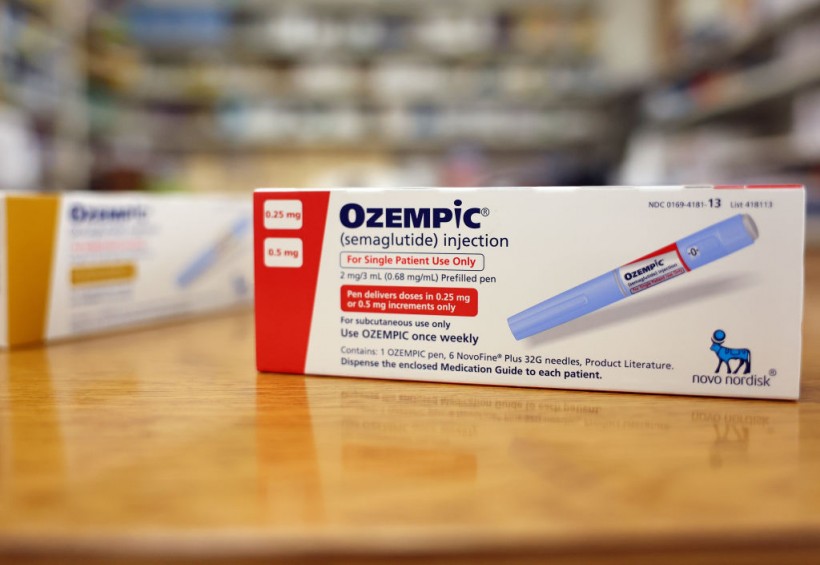Recent research by Yale University, King's College Hospital in London, and Doctors Without Borders has sparked pharmaceutical price issues, notably regarding Novo Nordisk A/S's obesity drug Ozempic.
The JAMA Network Open research, the cost of producing Ozempic, including a profit margin, ranges from 89 cents to $4.73 per month, as reported by Bloomberg. In comparison, Ozempic, a weekly injectable, is priced at $968.52 in the United States.
Novo Nordisk declined to release Ozempic and Wegovy manufacturing costs. The corporation underscored its commitment to ensuring the availability of its treatments, noting billions in manufacturing facility improvements.
The report highlights the high markups for GLP-1 medications like Ozempic and Wegovy in the US market, adding to prescription price criticism, notably for insulin. Ozempic's monthly manufacturing costs are lower than those of other insulins.
Yale public health economist Melissa Barber, the study's corresponding author, called for fair pricing discussions about pharmaceuticals like Ozempic due to their high-profit margins. Barber and her colleagues used updated raw ingredient cost estimates in their study to increase pharmaceutical industry transparency.

(Photo : Mario Tama/Getty Images)
In this photo illustration, boxes of the diabetes drug Ozempic rest on a pharmacy counter on April 17, 2023 in Los Angeles, California.
Ozempic Maker Defends Escalating Costs
Under pressure from the Biden administration, some insulin prices dropped by up to 75% last year, but Novo Nordisk said a large percentage of their revenues went to rebates and discounts to assure patient access. The corporation justified its price with hefty R&D expenditures.
State health plans and Medicaid offices are worried about weight loss drugs Ozempic and Wegovy's escalating prices. States like North Carolina have stopped covering anti-obesity drugs owing to cost and manufacturer price disputes.
The research indicated that Ozempic's main cost is disposable injectable pens, not the active drug. Pen refills and chemical components cost extra. Wegovy was not estimated, although past studies suggest its manufacturing costs may be far lower than its retail price.
Read Also: Poor Sleep Quality Can Make You Feel Years Older: Study
Social Media Users Raise Concerns Over Ozempic Babies
Meanwhile, social media has been buzzing about "Ozempic babies," women who have had unexpected births after using GLP-1 weight reduction medicines like Ozempic.
This raises issues concerning GLP-1 drug-fertility interactions. Board-certified endocrinologist Dr. Neha Lalani verified birth control failure owing to stomach emptying and medication absorption issues. Lalani recommends alternate birth control while using these drugs.
Lalani suggested that weight reduction from GLP-1 medicines may affect fertility, but additional study is required. Weight reduction may increase ovarian function and fertility, she said.
NYU Langone Fertility Center Program Director Dr. Jamie Grifo agreed with Lalani that weight reduction with GLP-1 medicines might improve fertility in those with polycystic ovary syndrome, also known as PCOS, by regulating ovulation.
This is not the first time that the anti-obesity medication faced controversy over reported side effects. In January, TechTimes reported that NIH-funded research examined whether Ozempic and Wegovy, diabetes and obesity medications, enhance suicide risk. The research examined electronic medical data from nearly 1.8 million individuals to address anecdotal findings linking semaglutide to self-harm.
In partnership with Case Western Reserve University, the study examined 240,000 obese and roughly 1.6 million diabetes patients from 2017 to 2022. Over a six-month follow-up, semaglutide users had a 49% to 73% reduced incidence of first-time or recurrent suicidal thoughts compared to those on other diabetes and obesity drugs.
The European Medicines Agency reviewed 150 cases linking semaglutide and GLP-1 receptor agonists to self-injury and suicidal ideation, prompting the inquiry. The US FDA is also investigating unsubstantiated GLP-1 medicine user complaints.
Related Article: Moderna's Next-Gen COVID-19 Vaccine Passes Phase 3 Clinical Trial










